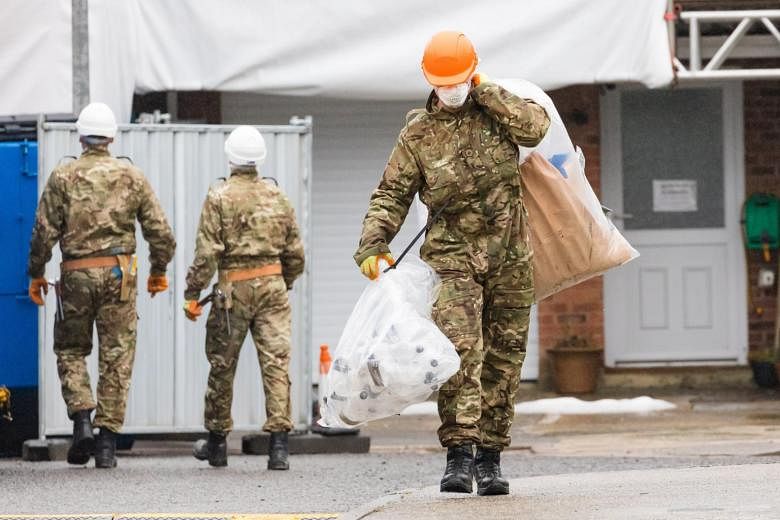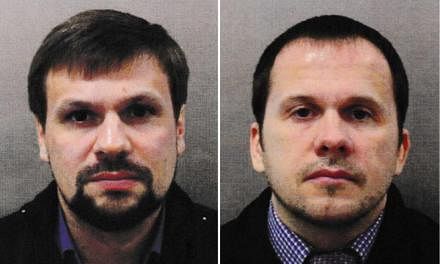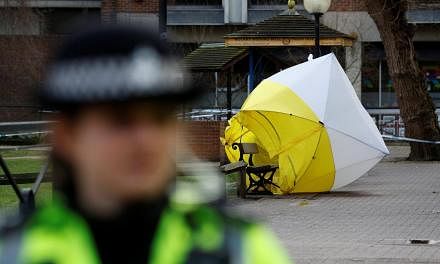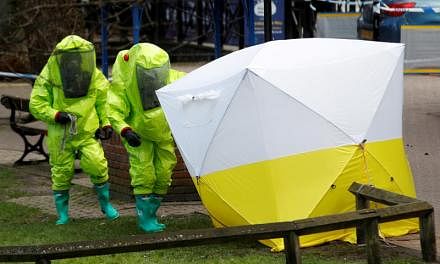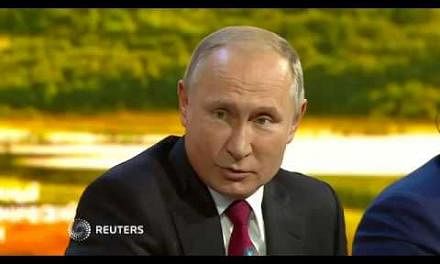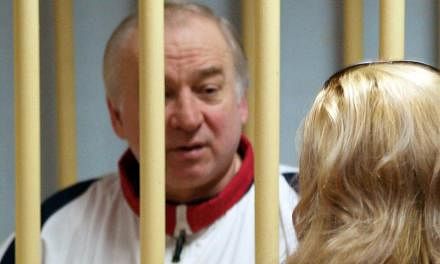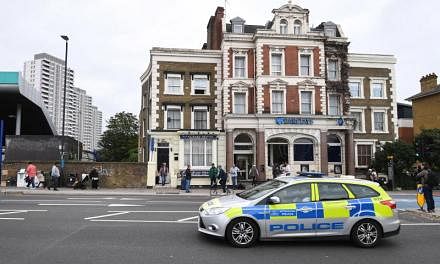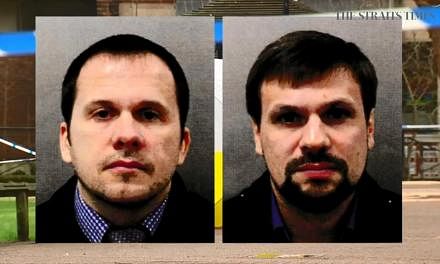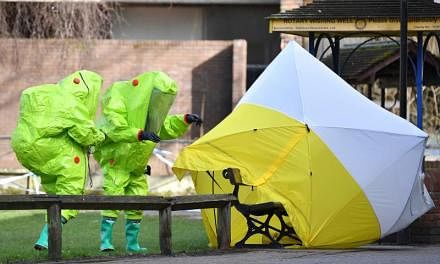LONDON (REUTERS) - A third man suspected of involvement in the nerve agent poisoning of former Russian spy Sergei Skripal in England last year is a high-ranking Russian military intelligence agent, the investigative website Bellingcat said on Thursday (Feb 14).
Skripal, a former officer in Russian military intelligence who betrayed dozens of spies to MI6, and his daughter Yulia were found slumped unconscious on a bench in the southern city of Salisbury in March 2018 after being poisoned with the Novichok military-grade nerve agent. Both later recovered.
A police officer was also sickened, and a woman who lived nearby died after her partner brought home a fake perfume bottle with what police say was the poison, discarded by the attackers.
Britain has accused two Russian GRU military intelligence officers of carrying out the attack and Bellingcat said it had identified a third Russian agent who was also in Britain at the time and was suspected of being involved.
"Bellingcat can now reveal the true identity and background of this GRU officer, who operated internationally under the cover persona of Sergey Vyachaeslavovich Fedotov," it said.
"In fact, this person is Denis Vyacheslavovich Sergeev, a high-ranking GRU officer and a graduate of Russia's Military Diplomatic Academy."
Last September, British prosecutors charged two Russians - known by the aliases Alexander Petrov and Ruslan Boshirov - with attempted murder in their absence.
Bellingcat was the first to identify the men as Alexander Yevgenyevich Mishkin and Anatoly Chepiga, both of whom worked for Russia's GRU intelligence services.
Two Russians, who identified themselves as Petrov and Boshirov, appeared on Russian TV to say they were innocent tourists who went to Salisbury to see its cathedral, travelling there on consecutive days during a weekend visit to Britain.
The Kremlin has also repeatedly denied any involvement in the incident, accusing British intelligence agencies of staging the attack to stoke anti-Russian hysteria.
Britain's Foreign Office said it had no immediate comment on the Bellingcat report.
On Monday, Bulgaria said it was investigating a possible link between the Skripal attack and the poisoning of an arms dealer in Sofia in 2015.
Bulgarian Chief Prosecutor Sotir Tsatsarov said Fedotov had visited Bulgaria three times in 2015 and was there in April when local arms dealer Emilian Gebrev was poisoned.
